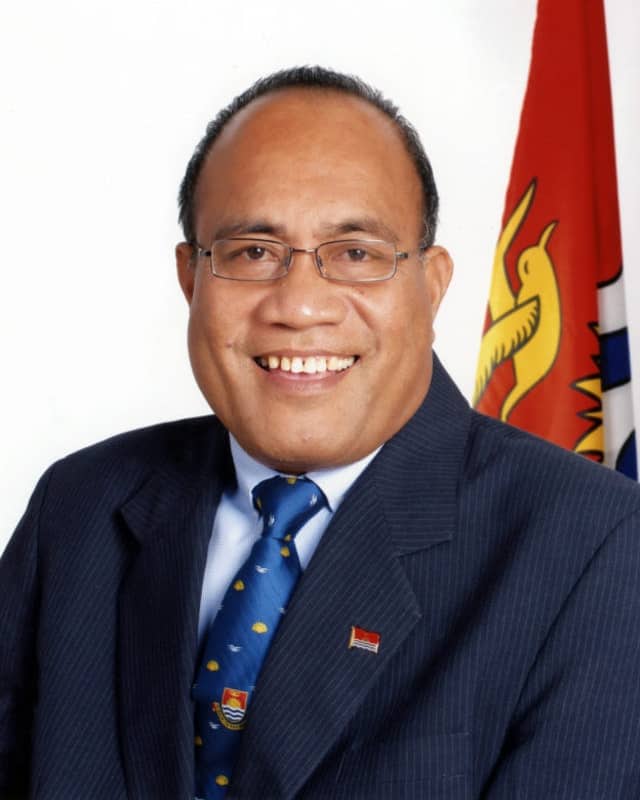Kiribati’s President retained his parliamentary seat in a landslide, according to the first results on Thursday of an election that hinged on worries about the cost of living, rising sea levels and closer ties with Beijing.
Results posted by the Pacific nation’s Ministry of Culture and Internal Affairs showed Taneti Maamau won his Onotoa seat with almost 83 percent of the vote.
It was a thunderous endorsement that puts the 63-year-old in a strong position to extend his almost decade-long tenure in a separate vote later this year.
Wednesday’s election was seen in part as a referendum on Maamau’s embrace of Beijing.
Maamau ditched relations with Taiwan in 2019, betting that ties with the world’s second-largest economy would help Kiribati meet ambitious 2036 development goals.
The move provoked concern in the United States and its allies over China’s diplomatic and military ambitions in the Pacific.
Maamau’s chief rival, opposition leader Tessie Lambourne, also won her seat Thursday, garnering more than 50 percent of the vote and avoiding a second-round runoff despite a tough race.
Maamau this year sacked and effectively deported Lambourne’s Australian-born partner, David Lambourne, then a high court judge. Parliament will return on 13 September, when a new speaker and candidates for the presidential election are chosen.
Kiribati’s people will then go back to the polls in a separate vote to choose the president.
Voters cast ballots on Wednesday for 44 parliamentary seats, and unofficial results a day later showed more than a dozen seats will likely require a second round of voting on Monday, under an election system that requires a clear winner.
Low-lying Kiribati faces a raft of economic and environmental challenges.
The minimum wage is US$0.99 and unemployment rates remain high.
Ruth Cross Kwansing, a candidate for the South Tarawa region, said the Pacific nation faces high prices because imports must be shipped to Fiji before coming to Kiribati.
“Without anything to export, it’s a one-way street, which pushes up the price of containers and that’s passed on to the cost of goods,” she told AFP.
Consumer prices rose more than 9 percent last year, according to official data.
Water supplies were also dwindling, particularly with a drought expected in the coming months, Cross Kwansing said.
Most people collect their water from a public water point but cannot access it every day, she said.
Economic challenges aside, Kiribati is also threatened by rising sea levels that now regularly taint drinking water supplies.
Groundwater in Kiribati is up to 2 meters deep and is easily contaminated by saltwater inundation, as well as human and livestock waste.
Aid agency ChildFund surveyed 1,875 houses in 2021 and found 73% had water that was unsafe or likely unsafe to drink due to bacterial contamination.
While desalination plants are expected to be built across the islands, it could be years before regular clean water is available to households.
It is also unclear how the water will reach homes, Cross Kwansing said.
With outer atolls already under threat from coastal erosion, Tinaai Kaboua, a travel agent based in the capital Tarawa, said overcrowding further exacerbates supply issues.
“The cost of imported food is very high, but we manage. In Tarawa, some places have water contamination,” she told AFP.
“There is a water company that brings water from big water tanks that comes every second day. It’s not really enough for things like cooking and drinking.
“The main thing is we need more water tanks to help us,” she said.
